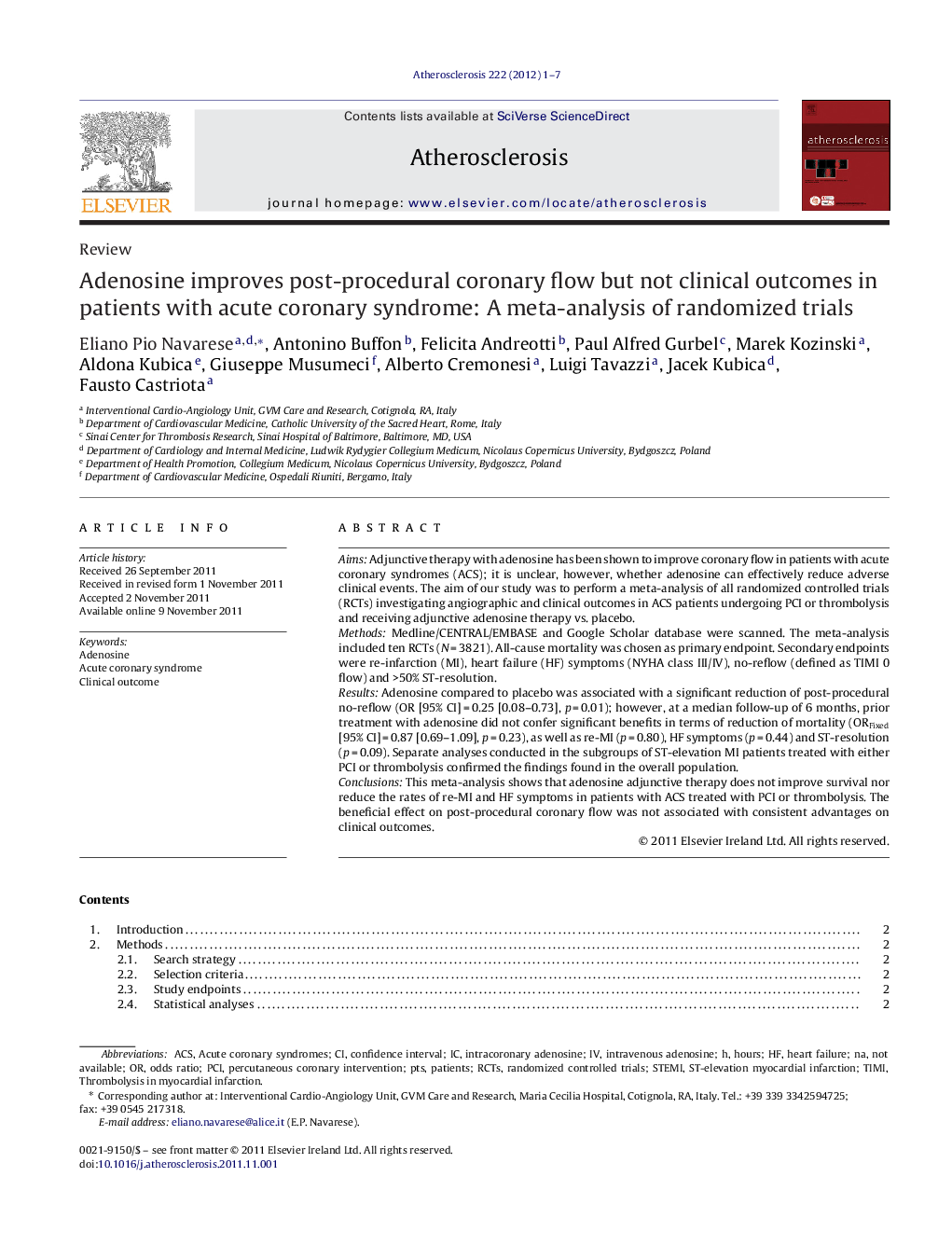| کد مقاله | کد نشریه | سال انتشار | مقاله انگلیسی | نسخه تمام متن |
|---|---|---|---|---|
| 5948044 | 1172376 | 2012 | 7 صفحه PDF | دانلود رایگان |

AimsAdjunctive therapy with adenosine has been shown to improve coronary flow in patients with acute coronary syndromes (ACS); it is unclear, however, whether adenosine can effectively reduce adverse clinical events. The aim of our study was to perform a meta-analysis of all randomized controlled trials (RCTs) investigating angiographic and clinical outcomes in ACS patients undergoing PCI or thrombolysis and receiving adjunctive adenosine therapy vs. placebo.MethodsMedline/CENTRAL/EMBASE and Google Scholar database were scanned. The meta-analysis included ten RCTs (N = 3821). All-cause mortality was chosen as primary endpoint. Secondary endpoints were re-infarction (MI), heart failure (HF) symptoms (NYHA class III/IV), no-reflow (defined as TIMI 0 flow) and >50% ST-resolution.ResultsAdenosine compared to placebo was associated with a significant reduction of post-procedural no-reflow (OR [95% CI] = 0.25 [0.08-0.73], p = 0.01); however, at a median follow-up of 6 months, prior treatment with adenosine did not confer significant benefits in terms of reduction of mortality (ORFixed [95% CI] = 0.87 [0.69-1.09], p = 0.23), as well as re-MI (p = 0.80), HF symptoms (p = 0.44) and ST-resolution (p = 0.09). Separate analyses conducted in the subgroups of ST-elevation MI patients treated with either PCI or thrombolysis confirmed the findings found in the overall population.ConclusionsThis meta-analysis shows that adenosine adjunctive therapy does not improve survival nor reduce the rates of re-MI and HF symptoms in patients with ACS treated with PCI or thrombolysis. The beneficial effect on post-procedural coronary flow was not associated with consistent advantages on clinical outcomes.
Journal: Atherosclerosis - Volume 222, Issue 1, May 2012, Pages 1-7